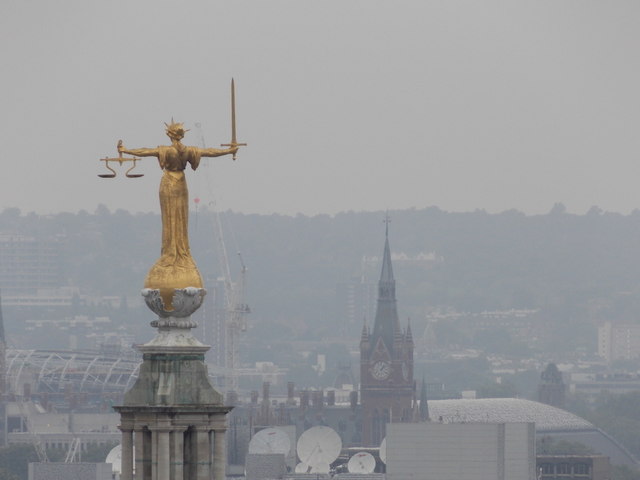We bring you the updates for last week. Hope it updates you with all the news from legal world.
In an
interim order passed by the Delhi High Court, Micromax has to pay a royalty
that amounts up to 1% of the selling price of its devices to Ericsson. Ericsson
had alleged that Micromax had refused to enter into a licensing agreement
covering its patented innovations across several wireless technology standards
such as GSM, EDGE and third generation (3G). The patents in question are a part
of what are called “standards-essential” patents and holders are expected to
license them on Free Reasonable and Non-Discriminatory (FRAND) terms. Micromax
was said to have keen on negotiating a FRAND license with Ericsson but the
companies could not come to a suitable conclusion.
The
E-Committee of the Supreme Court has rejected the Government’s proposal to
record the Court proceedings in a subordinate court. The E-Committee rejected the proposal saying
it was not acceptable at present. The proposal to record court proceedings was
made by the government after an advisory council meeting of the Law Ministry
held in August this year. This was as a part of the E-court project under which
the government had sought to initiate recording of the proceedings in lower
courts and subsequently bring the High Courts and the Supreme Court under its
ambit.
The
Supreme Court is facing an interesting case of murder where the accused was
tried as an adult though the accused was a juvenile at the time of commission
of offence. Since, the accused was a
juvenile when the offence was committed, the criminal trial stands vitiated and
a fresh trial will have to be held before the Juvenile Justice Board
(JJB). The Court has sought the
assistance of the Attorney General to resolve the issue.
In a
letter to the High Courts, Chief Justice of India H.L. Dattu has asked for the
judgments delivered by the Judges of the High Courts, in order to “ascertain
quantitative as well as qualitative disposal of cases”. So far Reported Judgments
have been accepted as one of the parameters for ascertaining “qualitative
disposal”. Now as per this letter, the details of all judgments will have to be
provided. The letter also demands resumes of the Chief Justices and the Judges
in a specified format. It also demands details of total and reported judgments.
In
Criminal writ petition before the Bombay High Court, the Petitioner was seeking
criminal prosecution of a Judge in respect of acts discharged during judicial
functions. It was held no Court shall entertain or continue any civil or
criminal proceeding against a Judge for any act, thing or word committed, done
or spoken by him, when, or in the course of, acting or purporting to act in the
discharge of his official or judicial duty or function. The Court also held
that no Judge can be prosecuted without a prior sanction, whether the alleged
offence is punishable under the provisions of Prevention of Corruption Act,
1988 or under the Indian Penal Code or under any other law.
The
Central Information Commission has held that refusing to give details of foreign
tours by ministers and officers, and staff particulars of AG without hearing
the appellant was wrong. It set aside
the order of First Appellate Authority of Department of Legal Affairs as it was
given without hearing the appellant. CIC
also recommended action against the officer for this ‘illegal’ order.
The Bar
Council of India has recently notified the Certificate of Practice and Renewal
Rules of 2014. Under these rules, a lawyer must practice for two years in a
trial court and three in a high court before being allowed to practice before
the apex court. The new rules also mandate the renewal of licenses every five
years, in an attempt to “weed out” those lawyers who are no longer practicing.
In
accordance with the Andhra Pradesh Reorganisation Act, the Ministry of Law and
Justice has decided on the formation of a separate High Court for Andhra
Pradesh. According to section 30 of the A.P. Reorganisation Act, 2014 the High
Court of Judicature at Hyderabad shall be the common High Court for the State of
Telangana and the State of Andhra Pradesh till a separate High Court for the
State of Andhra Pradesh is constituted under Article 214 of the Constitution of
India and other provisions of the Act.
The
National Pharmaceutical Pricing Authority (NPPA) is all set to slash the prices
of popular medicines for stress, hypertension, HIV, pain and pneumonia. The
move seeks to cover as many as 100 new drugs and would apply to drugs of
varying strengths. This is the second time that NPPA has proposed regulating
the price of drugs outside the National List of Essential Medicines (NLEM),
2011. The announcement by NPPA comes in light of its findings that certain
“anomalies or discrepancies” exist in the description/specification of drugs in
NLEM.
We hope that this summarizes the last week's News. Your comments and suggestions are welcomed.
Until next post of weekly News updates.
Anjana Srinivasan, (2nd Year student of IIT Kharagpur Law School)
For 'OFF Court.'
Disclaimer: This blog or any post thereof
is not to be considered to be in any way associated with the official stand of
IIT kharagpur or RGSOIPL on the issues being discussed in the said post. The
opinions on the blog are the authors own and should not be considered as legal
advice.













